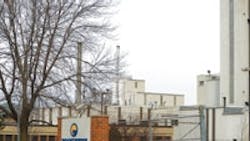Logistics Teams Up With Accounts Payable to Recover Lost Profits
As a producer of corn-based starches and syrups, Roquette America Inc. faces a situation typical to manufacturers -- identifying exactly how much the company is spending on transportation and logistics. Figuring out how much it spends on freight per year is the easy part, but Roquette wanted to know a lot more. For instance, what percentage of total production cost does that amount represent? What is the company's percent of profit margin? If the transportation carriers were refunding identified overpayments to Roquette, what would the impact be on gross profit before tax?
Roquette decided to run a financial analysis on its freight payment history, based on the following premise: If the company operates at a 5% profit margin, it takes $20,000 in sales to generate $1,000 in profit. Conversely, when Roquette's transportation service providers refund $1,000 to the company, that money -- which would immediately impact the gross profit before tax, represents $20,000 in sales. Roquette refers to this as the "profit percentage to cost of sales" model.
Thanks to Roquette's freight payment audit process, a dollar returned equals many more earned. Shown is Roquette America's Gurnee, Ill., plant.
"Our Rail Services group provided rail contracts, shipment records and passworded accessibility to yet another third party online service that we use for rail car track and trace to verify the movement of rail cars and product," Motley explains. The audit firm, meanwhile, analyzed the rail shipment information and payment records, focusing particularly on areas where carrier billing errors are most common.
In terms of benefits, Motley points to two areas: cost control and payment process improvements. Rail carriers have returned a significant amount over a two-year period due to Roquette's ability to identify billing discrepancies. "There are more refund claims filed in the beginning," Motley points out, "because an audit can go back retroactively and audit billings from past years and then catch the process up to date. Those dollars, which had already been spent, when returned, go straight to the gross profit before tax line." Additionally, she adds that the "percentage of profit to cost of sales" analysis confirms that the audit process has, in effect, recaptured sizeable earnings dollars.
| If you operate at a net profit of | A Claim For | ||||
| $500 | $1,000 | $1,500 | $2,000 | $2,500 | |
| Equals Sales Of | |||||
| 2% | $25,000 | $50,000 | $75,000 | $100,000 | $125,000 |
| 3% | $16,667 | $33,383 | $50,000 | $66,667 | $83,333 |
| 4% | $12,500 | $25,000 | $37,500 | $50,000 | $62,500 |
| 5% | $10,000 | $20,000 | $30,000 | $40,000 | $50,000 |
| 6% | $8,333 | $16,667 | $25,000 | $33,333 | $41,667 |
| Roquette America uses a "profit percentage to cost of sales" model, shown here. | |||||
Roquette's discovery of a new revenue source illustrates the evolution of supply chain thinking on the financial side of manufacturing. The traditional logistics department's tactical view of how to budget for freight movements has been superseded by a more centralized, corporate-wide fiscal analysis of the bigger picture, a transformation possible due to the implementation of enterprise systems that can plan, administer and account for all company costs.
The company compensates the auditors on a percentage of the dollars returned from its carriers after it has received its carrier refund checks, notes Paul Janicki, Roquette's chief financial officer. "That means that there is zero cost to Roquette America to realize the return of profit that the service has generated. Equally as important, this engagement has helped focus our efforts on improving our processes."
"While the emphasis of this endeavor is to drive further cost containment, it also will give finance and accounts payable an opportunity to sit down with the logistics group and talk about the ongoing audit process to determine what we can do to cooperate towards further process improvement," Motley adds.
See Also
About the Author
Dave Blanchard
Senior Director of Content
Focus: Supply Chain
Call: (941) 208-4370
Follow on Twitter @SupplyChainDave
During his career Dave Blanchard has led the editorial management of many of Endeavor Business Media's best-known brands, including IndustryWeek, EHS Today, Material Handling & Logistics, Logistics Today, Supply Chain Technology News, and Business Finance. He also serves as senior content director of the annual Safety Leadership Conference. With over 30 years of B2B media experience, Dave literally wrote the book on supply chain management, Supply Chain Management Best Practices (John Wiley & Sons, 2010), which has been translated into several languages and is currently in its second edition. He is a frequent speaker and moderator at major trade shows and conferences, and has won numerous awards for writing and editing. He is a voting member of the jury of the Logistics Hall of Fame, and is a graduate of Northern Illinois University.
